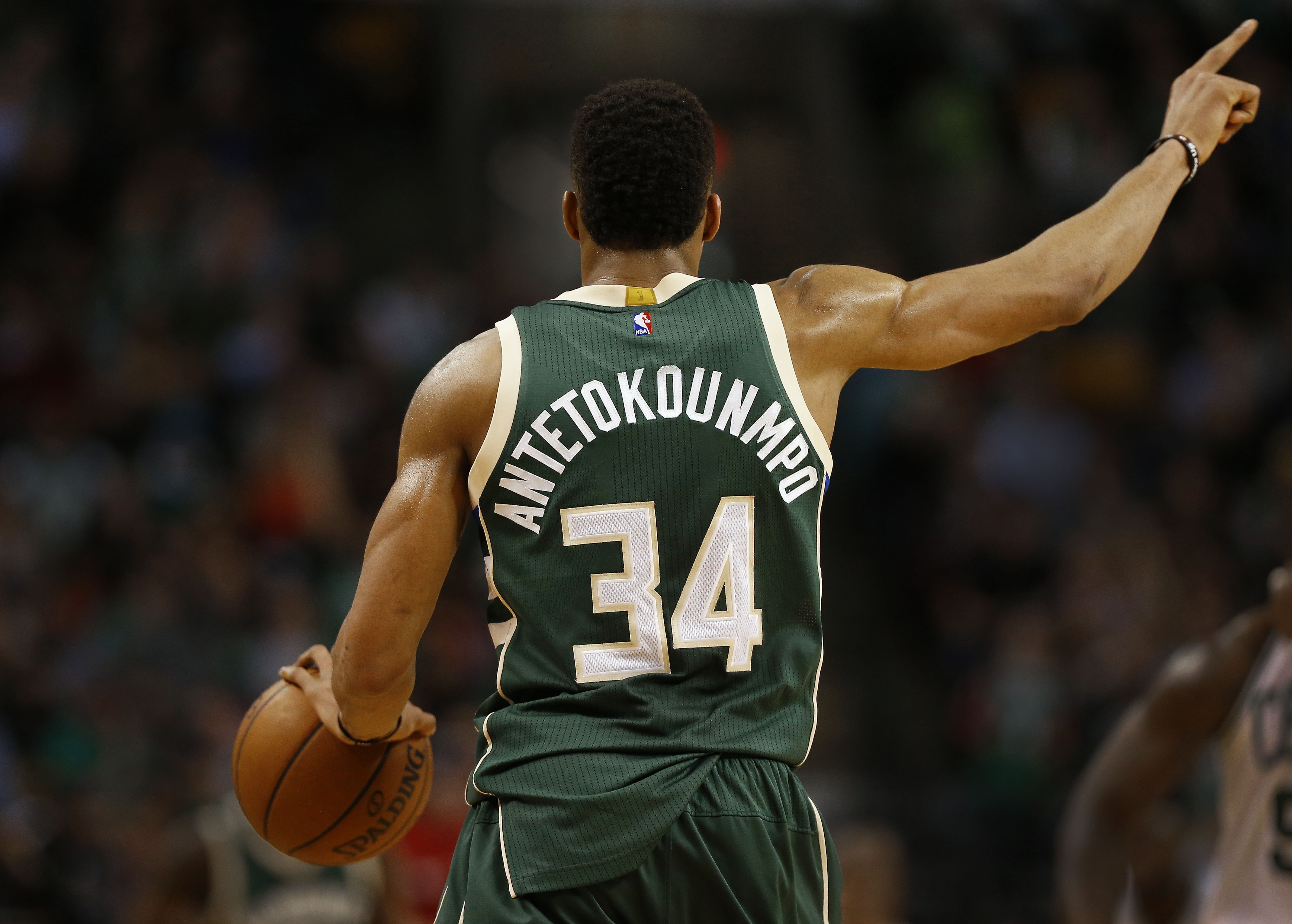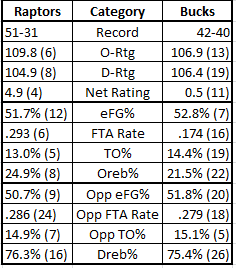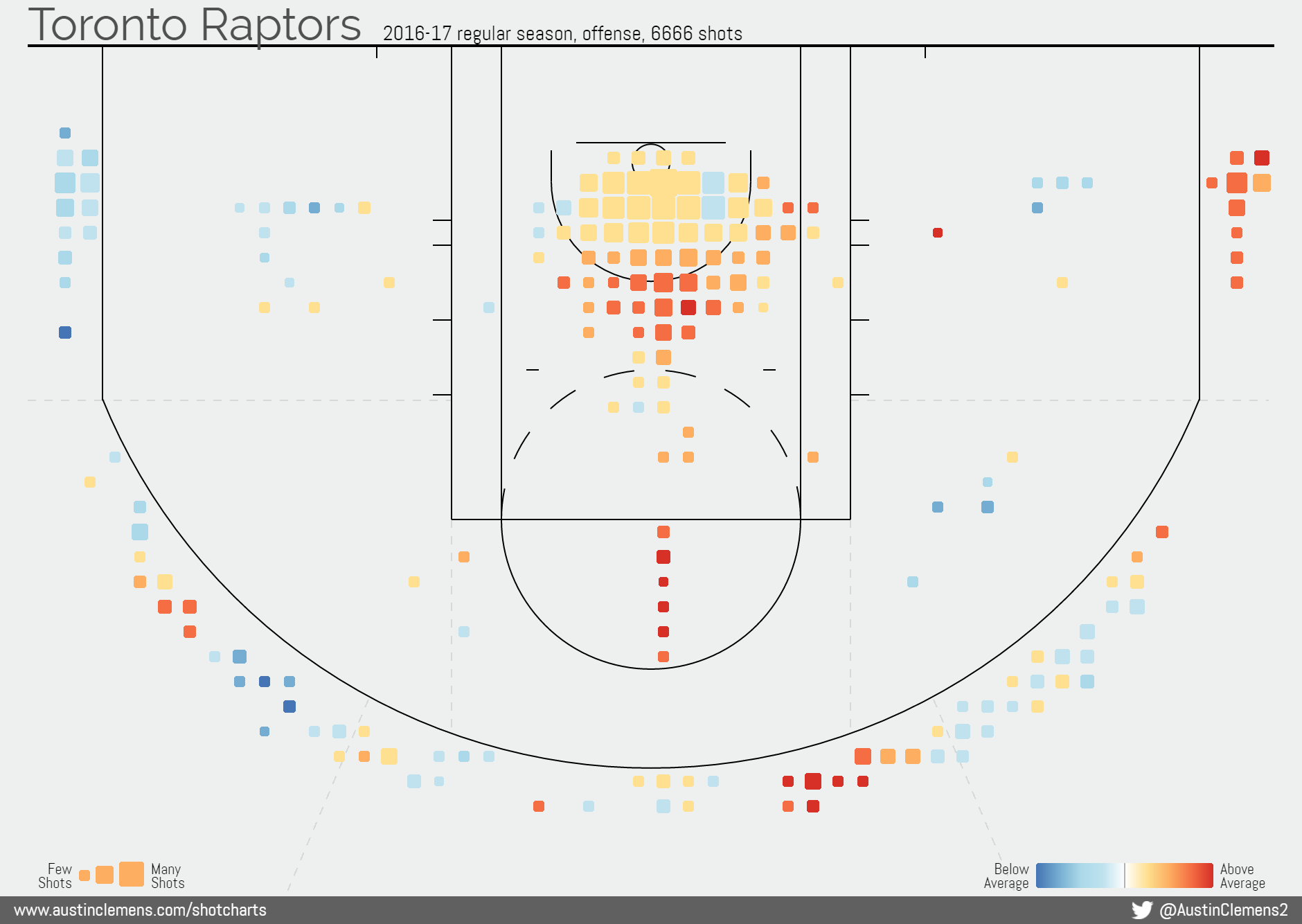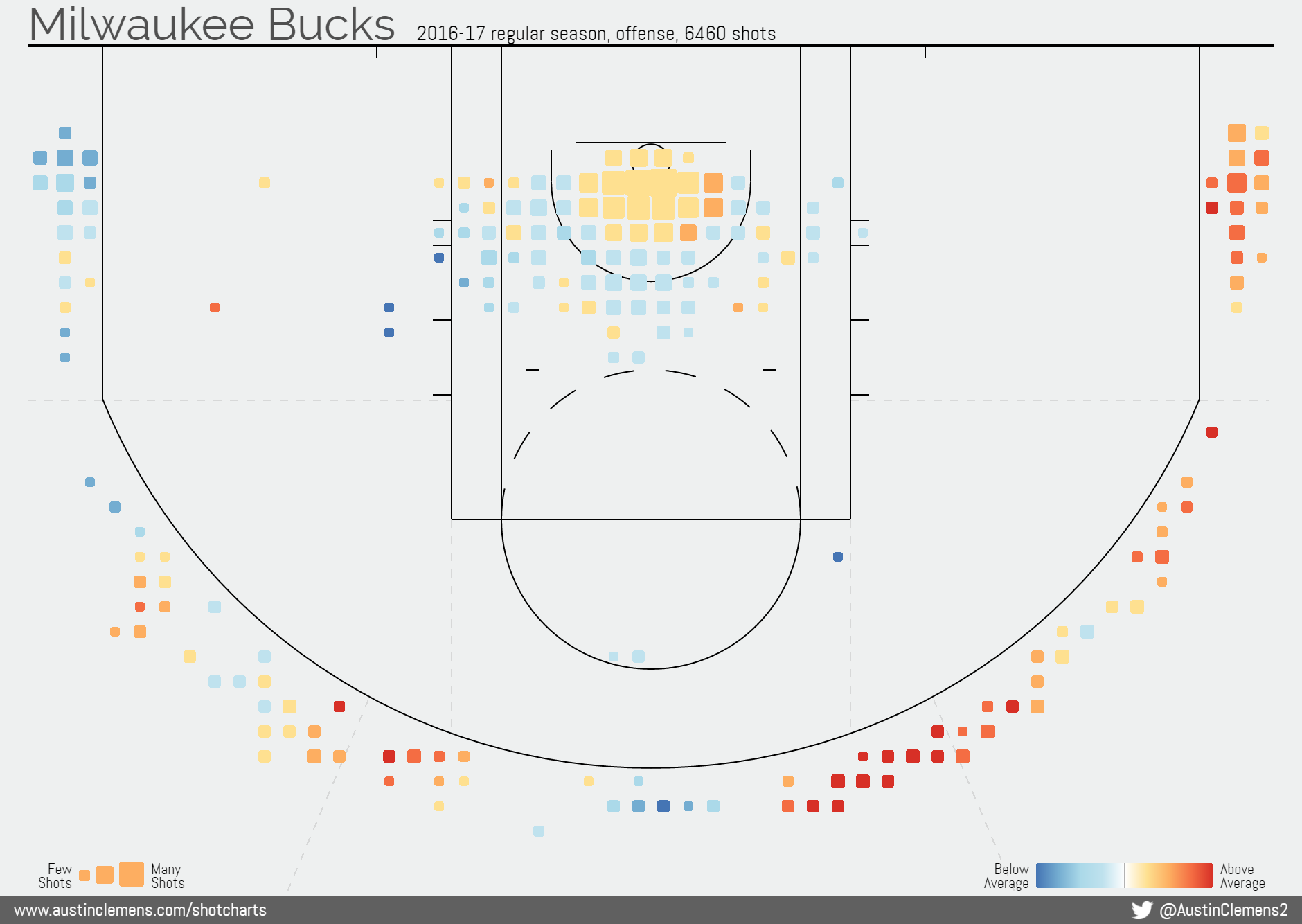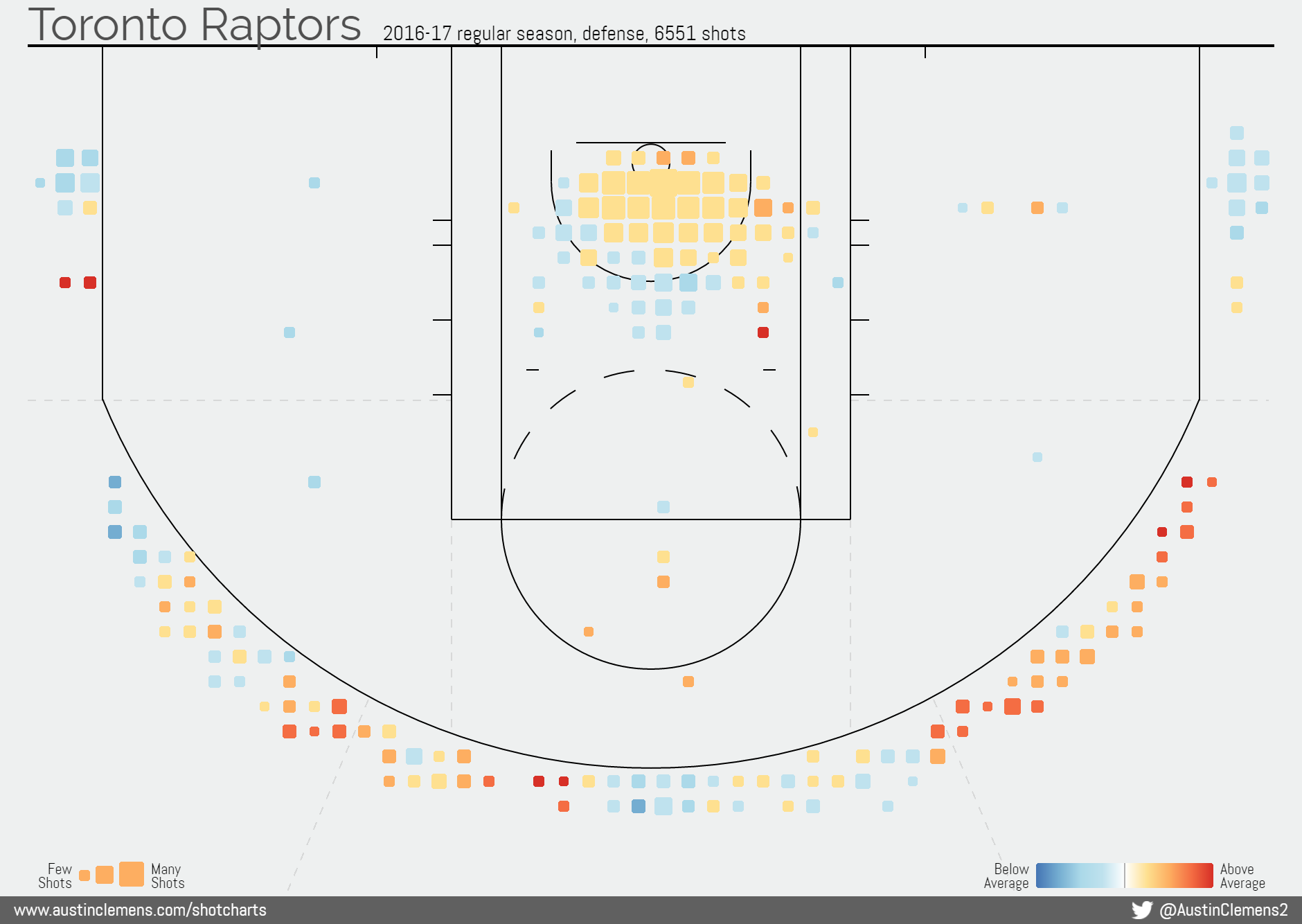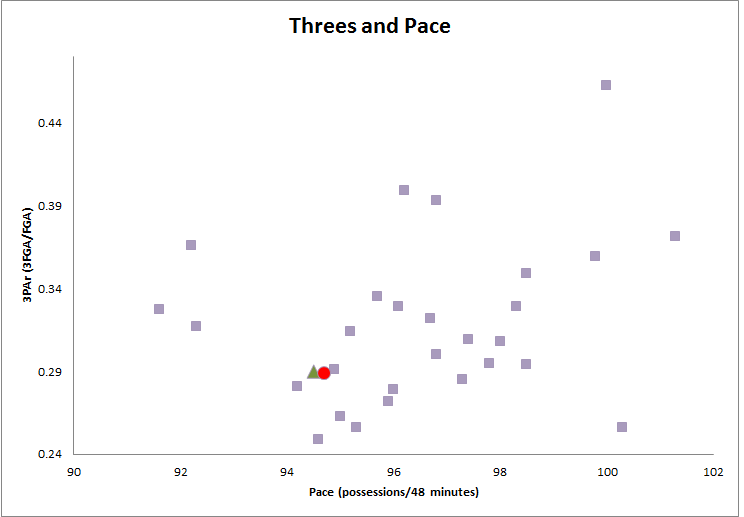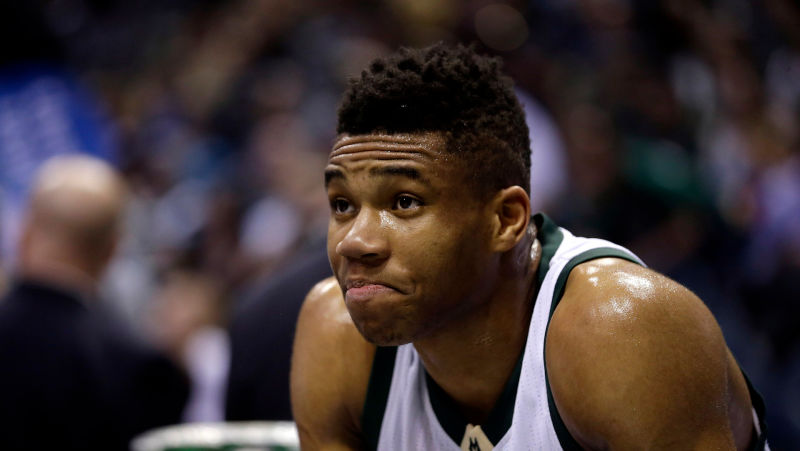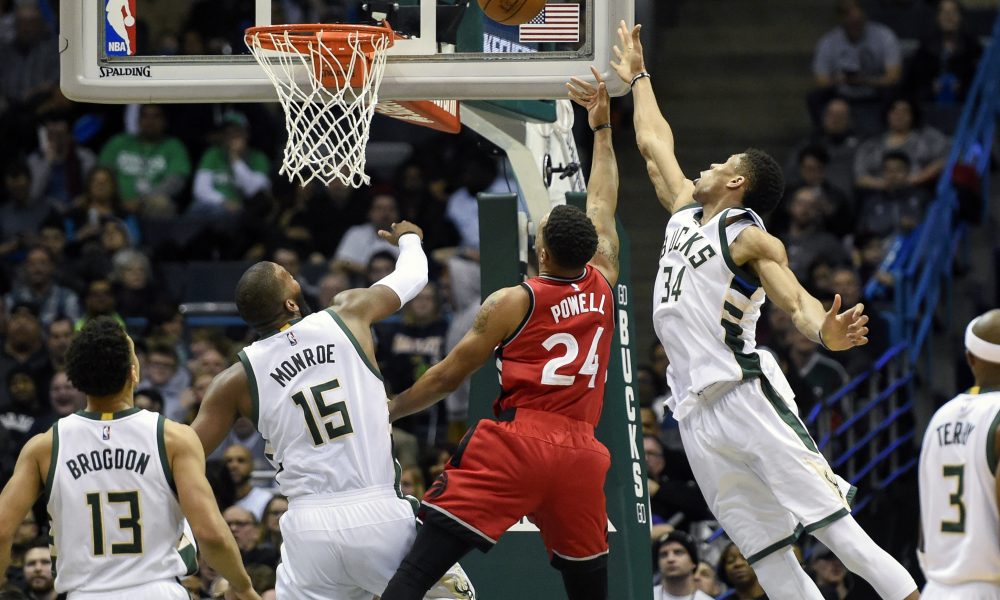The playoffs are finally here. The 51-31 Toronto Raptors drew the third seed in the Eastern Conference, and as a result they’ll host the sixth-seeded, 42-40 Milwaukee Bucks. The series tips off Saturday and pits the Raptors’ post-All-Star break surge to the test against one of the most intriguing up-and-coming two-way teams in the NBA.
To help set the stage for the series, we reached out to Mitchell Maurer of BrewHoop, and he was kind enough to provide deep, thoughtful answers to an annoyingly long list of questions I sent his way. Give him and the BrewHoop guys a follow and be sure to check out BrewHoop for the Bucks’ side of things throughout the series.
https://www.youtube.com/watch?v=zAohOHH93Yc
Blake Murphy: The Bucks essentially swapped out Jabari Parker for Khris Middleton midway through the season, with the former suffering an unfortunate ACL tear and the latter returning from a hamstring injury. Parker won’t be seen until next year, but Middleton figures to be a massive piece in this series, one the Raptors didn’t get an extended look at in the season series this year. What does Middleton bring at both ends of the floor that the Raptors will need to watch out for?
Mitchell Maurer: Jabari Parker is many things, and many of those things are good. Khris Middleton brings a much different flavor to the Bucks when he’s active. First, he’s a much smarter defender than Jabari, and at 6’8” he’s able to capably switch onto off-guards and stretch-4s alike. Second, he’s much more steady on offense than Jabari has been. Where Parker would slice through the lane for a thunderous slam, Khris is more likely to seek out a mismatch and take a fadeaway against a shorter defender. Unlike Jabari, though, Middleton is very comfortable taking midrange and long range jump shots from any spot on the floor. More than anything, Khris is a much better communicator on the floor. He calls out screens better, he tells teammates where they need to be more often, and overall leads more effectively than Parker has.
Blake Murphy: Middleton seems a natural fit on the wing next to Giannis Antetokounmpo. Between those two, Tony Snell, and Malcolm Brogdon, and even Thon Maker, the Bucks have a ton of length and switchability all around the floor on defense. Just how aggressive does Milwaukee get in switching assignments or cross-matching on the fly? Has Maker established himself as a reliable part of that scheme?
Mitchell Maurer: On paper, Milwaukee is among the most aggressive defenses in the NBA. With the length and mobility their starting group offers, they are far more likely to switch, trap, and force risky decisions than the average team. This has burned them on numerous occasions, because any high-reward system also comes with a high level of risk, and that risk manifests itself in the form of open corner-threes. Thon Maker’s elevation to the starting lineup helps mitigate this risk, since he’s far more athletic than his Milwaukee counterparts, but his youth and inexperience still caps his playing time, which also hinders the Bucks’ peak defensive output.
Blake Murphy: The Bucks also trap and blitz the pick-and-roll a ton. It’s something the Raptors saw plenty of when Jason Kidd and Eric Hughes were behind the bench for the Nets, and the Bucks haven’t been shy about using that strategy against the Raptors in the regular season. You have to figure they keep the same approach here, perhaps even ratcheting up the pressure against Kyle Lowry and DeMar DeRozan, right?
Mitchell Maurer: DeMar DeRozan knows that Eric Hughes knows his game, and knows how to take him out of it. That alone is reason enough to expect the Bucks to throw as many traps at DeRozan as they can stand, but I think they would be wise to exercise caution when deciding how to treat Kyle Lowry. While not as explosive, Lowry presents a very different problem for the Bucks defense in that he can simply make a good decision faster than Milwaukee can anticipate it. Of course, if you give Lowry space, he can make you pay, but that comes with the territory when you’re trying to contain the Best Guard in the Eastern Conference.
Blake Murphy: While Kidd’s scheme does well to get the ball out of the hands of the opponent’s best players, there are some drawbacks. A Kidd-led team has never been even average in terms of opponent free-throw attempts per-field-goal attempt, meaning the Raptors’ strategy of getting to the line plenty could still work here (DeRozan had a boatload of free-throws in the Nets series, for example). How do you feel about the aggression trade-off for the Bucks in this series, especially with the Raptors generally taking good care of the ball and possibly limiting another strength that flows from Milwaukee’s aggression?
Mitchell Maurer: Milwaukee’s ability to stifle Toronto’s free throw total is the key to any hope of a series upset. Because of how many gambles the Bucks have to take on defense (as demanded by the scheme), there are always going to be opportunities where the offense gets an angle to the rim. Against an opponent that knows how to move the ball (like the Raptors!), this means that Toronto will earn a number of beneficial whistles, since it’s impossible to expect the Bucks to recover on every trap on every possession. If any team could benefit from reluctant referees, it’s the Bucks…but I don’t expect to have that happen in the playoffs.

Blake Murphy: I don’t know why I waited five questions to just rave about Antetokounmpo. He’s amazing, he’s a ton of fun, and it’s been a blast watching Bucks tape preparing for this series. He can score in a variety of ways, he’s a monster in transition, and he uses his length exceptionally well on the defensive end, disrupting ball-handlers in the pick-and-roll, locking down opposing wings, or coming out of nowhere as a helper. He’s kind of terrifying and has the potential to be the best player in this series. What are your expectations for Antetokounmpo in his second taste of playoff action?
Mitchell Maurer: Giannis is the best, and I will vigorously denounce anyone who claims otherwise. Giannis has also shown flashes of what some Bucks fans call “Dark Giannis,” when he sneers and scowls and takes over a game in a way that few human beings can.
The problem with “Dark Giannis” is that it’s hard to control, and Giannis (who’s only 22!) can get easily frustrated…which is what happened the last time the Bucks were in the playoffs.
All that said, I expect Giannis to play hard and push the pace as much as his teammates will allow, and as the best player in the series (sorry, not sorry) he could call forth “Dark Giannis” to banish the Raptors from the postseason.
Raptors offense and Bucks defense, courtesy AustinClemens.com.
Blake Murphy: Looking at the entire series, whether it’s Xs & Os or numbers or lineup options or whatever, what do you see as the Bucks’ biggest strength in this series? Their biggest weakness?
Mitchell Maurer: The Bucks’ biggest weakness is their defense, and specifically their defense’s propensity to giving up open perimeter shots. They pride themselves on preventing early shots and have personnel who excel at limiting access to the rim, but the way they achieve those goals leaves them vulnerable to threes from the corner, which just so happen to be the most valuable threes available in basketball. Their strength is very much their versatility, ability to manufacture points in transition, and scoring points in the paint. We’ll see if they can do enough of the latter to offset the former.
Raptors offense and Bucks defense, courtesy AustinClemens.com.
Blake Murphy: The Bucks are among the league’s worst teams on the glass, ranking 26th in defensive rebounding rate and 22nd in offensive rebounding rate. This seems a byproduct of the system and the personnel, and there isn’t a great deal to be done about it. Is this something you expect to be a major edge for Toronto? How do you see Jonas Valanciunas fitting into this matchup?
Mitchell Maurer: Absolutely. The Bucks have good rebounders, but are a bad rebounding team, and it is definitely a downside of the scheme. Considering how often they have to force a defender to sprint to the line to close out on an open shooter, they’re routinely rebounding without a numbers advantage. Valanciunas is going to clean up on the glass this series, and it’s not going to be particularly difficult for him.
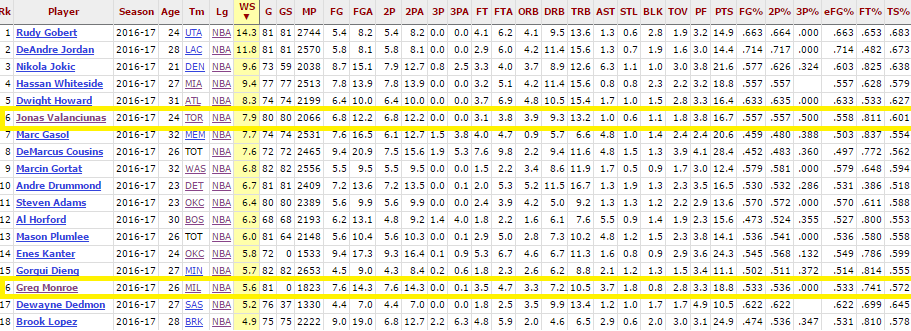
Blake Murphy: Speaking of Valanciunas, Greg Monroe has really found a home as the Bucks’ sixth man, to the point that he’s not only getting some Sixth Man of the Year love, but being lauded for his improved defense in the reserve role. Why has this set-up worked so well for Monroe and the Bucks? If you’re the Raptors, are you trying to line up some of Valanciunas’ minutes with Monroe in those second unit spots? (This is something Dwane Casey has experimented with since Kyle Lowry’s return, anyway, using Valanciunas with bench-heavy groups, and it’s one of the more interesting rotation subplots for early in the series, in my eyes.)
Mitchell Maurer: Greg Monroe has been a huge surprise this season, partially because few of us expected him to willingly embrace the sixth-man role. But considering he gets to score post buckets against second-string defenders while still earning minutes to play with the starters, it’s not really a bad gig for Moose. He’s also shown huge improvements on defense, partially because of his preposterously fast hands (1.8 steals per 36-minutes, 2nd among all centers), but also a renewed dedication to exerting effort and avoiding taking possessions off. JV would figure to be similarly impactful in such a role with Toronto, which makes sense for all of the reasons Monroe’s improvements makes sense.
Blake Murphy: The Bucks shoot just a moderate amount of threes, ranking 21st in the portion of their shots that come from long-range, one spot ahead of Toronto. They hit them well enough – they’re 10th in 3-point percentage – but their lack of outside fire-power lines up well with Toronto’s own infrequent bombing. Both teams also play at glacial paces, ranking as the two slowest Eastern Conference playoff teams by tempo. Does this figure to be a grimy, low-scoring series (probably Toronto’s preference), or will the Bucks use their youth to try to speed things up and fire a bit more from outside? Obviously, the correct answer for the Bucks is to just let Michael Beasley cook if things slow down too much.
Mitchell Maurer: I’m sorry to say it, but if Jabari Parker were still available, the Bucks really could run the Raptors out of the gym. However, without such a capable running mate, Giannis has been forced to lead the Bucks’ transition charge solo, and the team’s transition offense has tanked as a result. Despite their youth, the Bucks don’t have anybody (besides the injured Parker) that can run with Giannis. This means that the pace will be slow, which favors Toronto, or that Michael Beasley will get free reign to turn the court into his personal kitchen, which also probably favors Toronto. (Don’t get me wrong, Beasley has been great this year, but he’s still a flawed player overall.)
Blake Murphy: Call it.
Mitchell Maurer: Though I have much love for #BucksInSix, I expect this series to go 4-1 in favor of Toronto.

